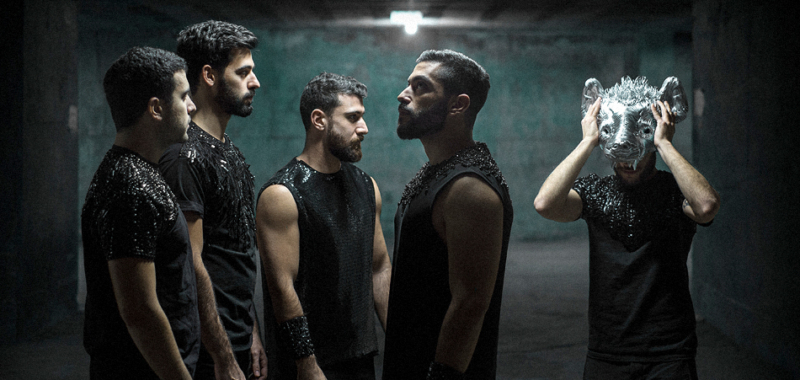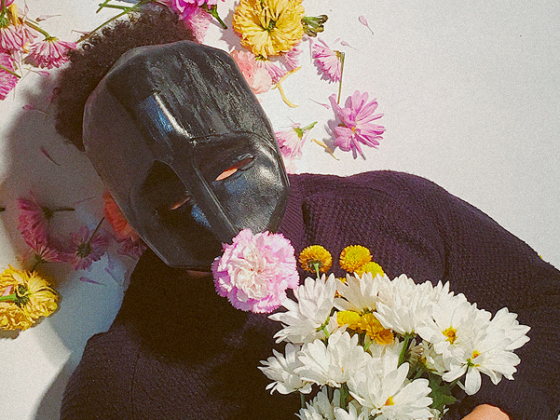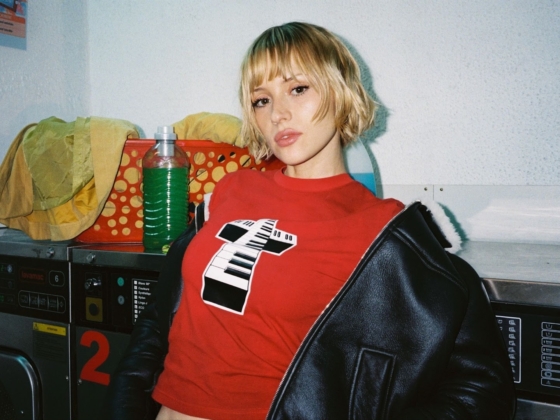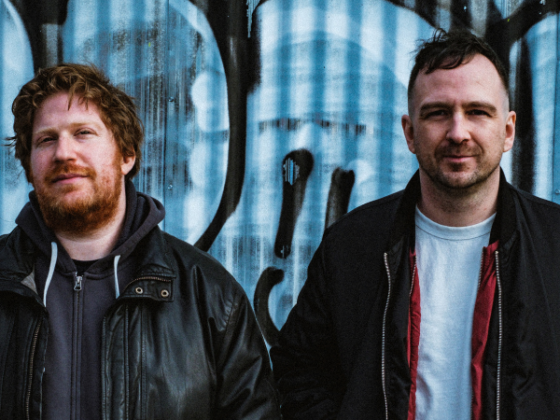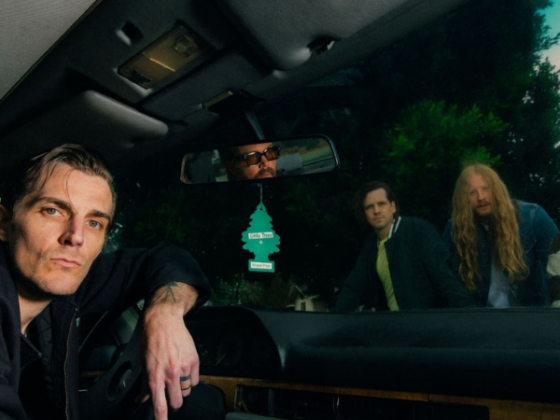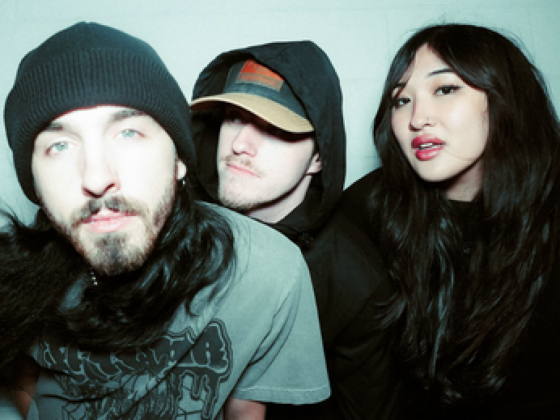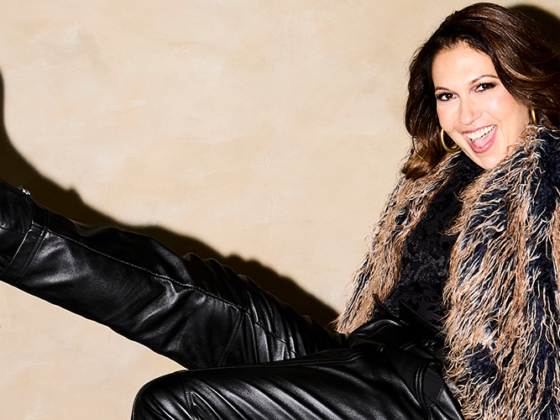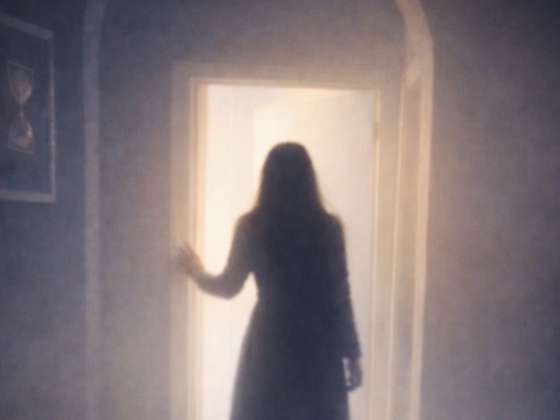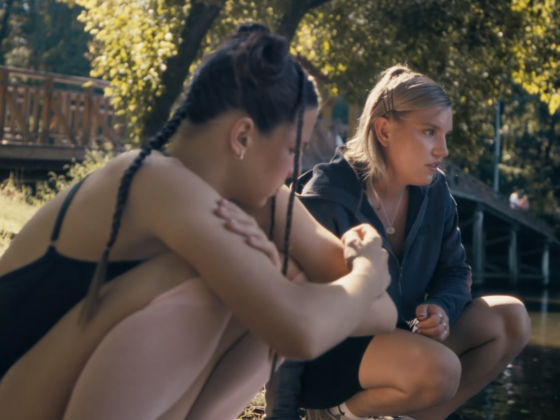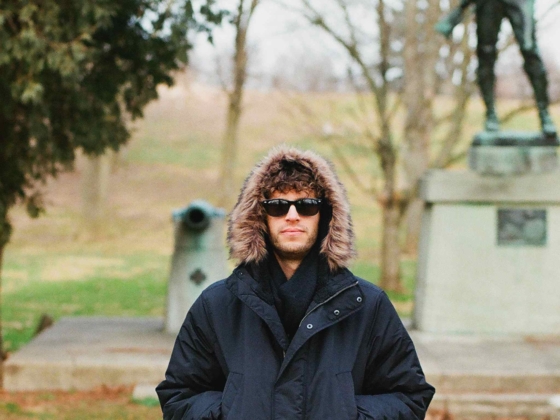Mashrou' Leila are a remarkable five-piece indie/ alternative rock band born after a nocturnal encounter in Beirut, Lebanon. Known for creating striking, emotive, electro-pop anthems about political freedoms, LGBT rights, race, religion, and contemporary Arabic identity, the band, who are all vocal intersectional feminists have consistently used their music as a tool to fight for equality. Their latest thought-provoking release "Roman," which is included as part of a deluxe version of Ibn El Leil (digital self-release here) has visuals directed by notable, emerging Lebanese female director Jessy Mousallem, and focusses on challenging perception and stereotypes of middle eastern women. Their accessible melancholic and equally sensual, modern arabic pop music confronts the status quo of Middle-Eastern life. EARMILK interviewed the band whilst on tour across UK, EU and USA. The band also selected a playlist of songs for Life after Death's second collaborative instalment – this time celebrating modern arabic identity. Listen below:
I feel like your music represents a lot of complex identities. Can you tell me how important it is you all to show all of these sides of yourselves through your music?
Often, the incredible thing about music is that it allows you a medium in which all identity is lost, save for that of performer and listener. The same piano key – struck by different people will still sound, at least from a formalist standpoint, the same. That said, we make pop. I can't imagine a version of pop music that doesn’t rapidly get tangled with the identities of it’s creators.
I know you were unable to play in Jordan recently. Can you explain to EARMILK a bit about what happened?
The Jordan ban was a result of our support for sexual freedoms and gender equality. The opinions that we have about the urgency of the situation in the region where gender and sexuality are concerned, are not the product of an identitarian inclination towards certain subject matter. They’re the product of a reasonable observation of the region. Regardless of what our identities are, and they do differ within the group, we all hold these convictions strongly.
I was first introduced to you musically through Ibn El Leil. It’s a wonderful blend of electronic influences, as well as more traditional instrumentation – more similar to your previous work. I would love to hear more about who inspires you musically?
The list of inspiration is very long, diverse, and varies from member to member. Inspiration could come from a painting or a film as much as from music. I think what shapes our sound most of all is us wanting to feel challenged and wanting a feeling of, if anything, personal accomplishment. And I believe this comes from trying new things, musically and technically, and that has a large inflection on our sound.
The English translations of the your Ibn El Leil lyrics come across at points as haunting/vacant, and yet incredibly poetic and unique. I’m sure they’re very relatable for a number of people. Do you find yourself influenced by poetry, or do you write almost solely from an autobiographical viewpoint?
In fact, many of the songs on Ibn El Leil draw on various texts from antiquity to modern times, and weaves them into a contemporary context. I made references to Whitman, Yeats, Plath, Foucault, and several writers from the Arab world in the texts. We don’t really see poetry and autobiography to be at odds in that sense. A lot of how we experience text and decode it, is the product of our experiences and who we are. Perhaps that’s why certain poems resonate with you in the first place.
I’m wondering if there is anything lost in translation from the beauty of the Arabic words to English?
So much. Definitely. both in nuance and in meaning. Apart from the poetic structure of syllables and sounds, Arabic has particular approaches to the grammatical gender of a sentence, as well as to the implied meaning of certain phrases and words in the context of today. These are things that are picked up on, and toyed with for creative purposes. There are also a lot of concepts that simply don’t translate.
Last year you teamed up with Greenpeace in Lebanon, and changed the lyrics of “Falyakon” to reflect ‘singing for the sun/ the sun unites us.’ How important is to you that your music enthuses social change, such as harnessing solar power/ climate change awareness?
In a lot of ways, we are quite lucky to have the chance to participate in such things. These are the topics that we think will dictate the movement of the world in the coming decades. Things like this resonate with us personally.
Can you tell me a bit about how you all met and started making music together?
We were literally all studying in the same building for 5 years in college. Someone put up a flyer saying they wanted to start a music workshop. 4 albums later, here we are.
This is the first time you’re coming back to the UK after two years and you’re also embarking to visit Europe and US. What can people expect at your live shows?
We’ve been working really hard on exploring the relationship between the tracks and the visuals we project on stage. Past that we’re playing a relatively long set with a lot of songs from the last 4 albums
How important is it that you stay independent as a band?
It is very important, but the truth is, in recent years, it is becoming the model. The decline in power of the large music corporations and the infiltration of the independent artist has forced the industry to re-evaluate its strategies. There is still a thriving and dominant commercial scene but even the artists there are gaining for creative control and their output and image. The fact that we have been able to continue producing music under the commercial and technical conditions that exist today in Lebanon is a testament to that. And we hope it grows.
Are you working on any new music or collaborations at the moment?
So many, but the only one that’s been announced so far is a single with Hercules & Love Affair.
Connect with Mashrou' Leila: Facebook | Website | Twitter | Spotify | YouTube

